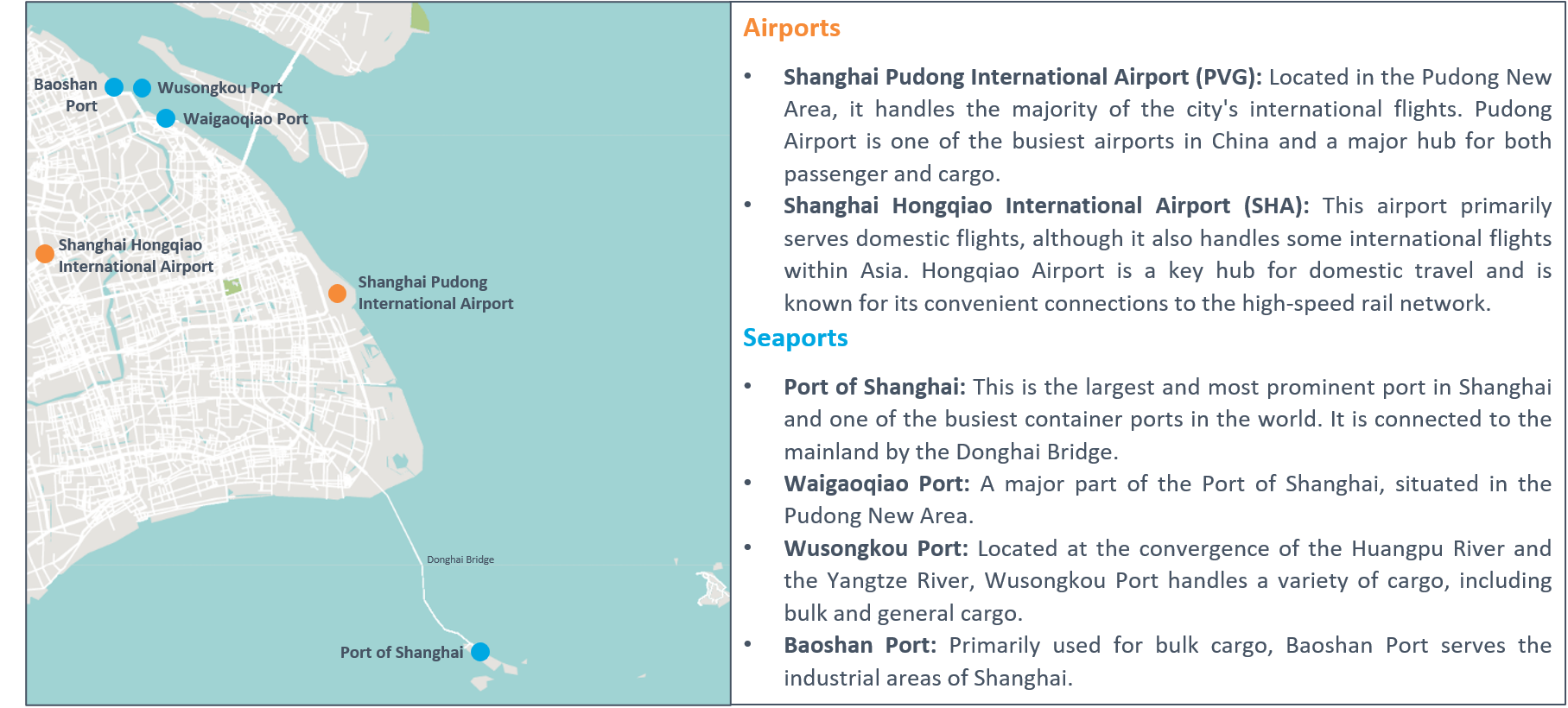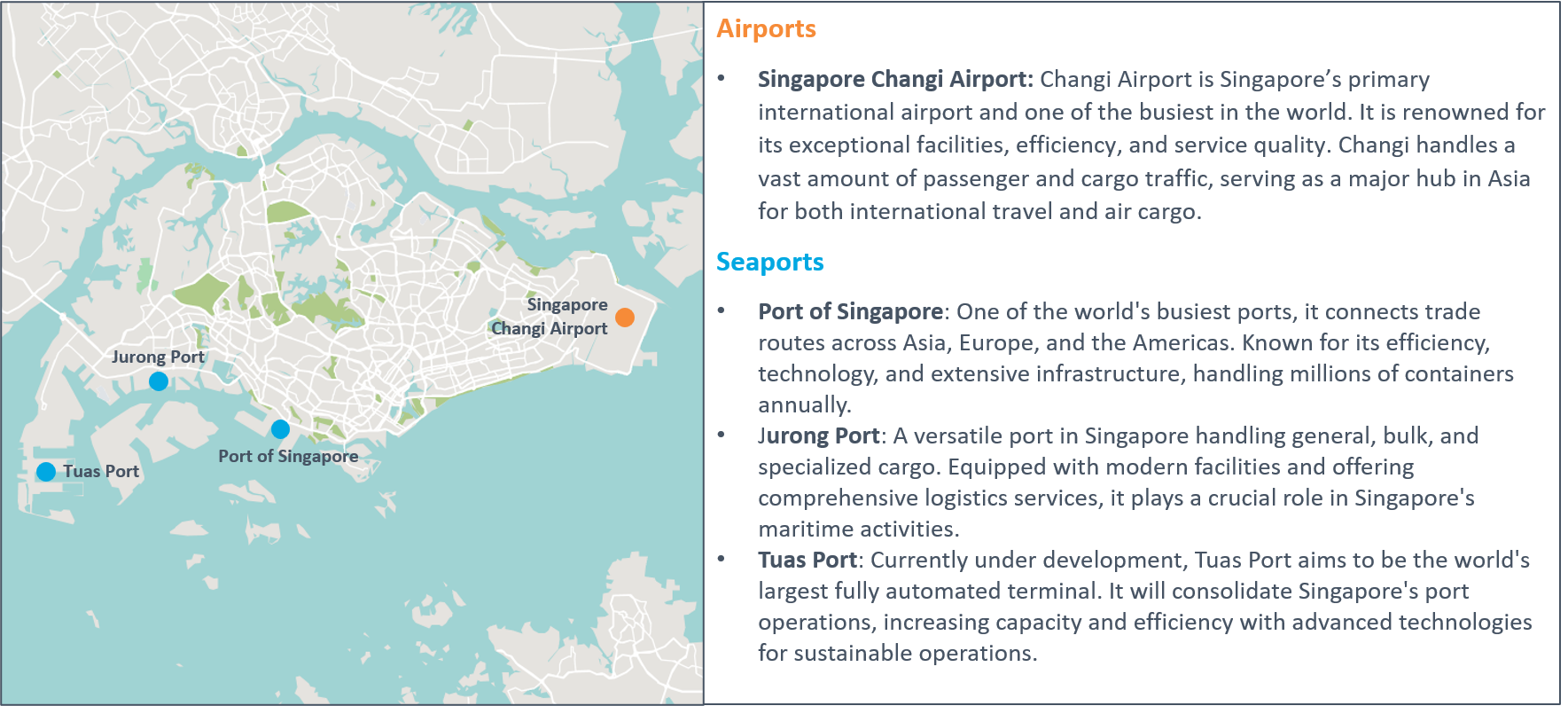Shipping between Shanghai and Singapore involves two of the world’s busiest trade hubs, each pivotal in global logistics. Understanding efficient shipping routes and logistical strategies between these cities is crucial for optimizing supply chain operations in Asia. This article explores key considerations and practical advice for shipping smarter and more efficiently from Shanghai to Singapore.
Trade Volumes
Shanghai and Singapore are titans in the world of trade, each boasting some of the busiest ports and airports globally. Shanghai ranks as the number one busiest port in the world, while Singapore follows closely at number two. Both cities are also in the top 20 for busiest airports in terms of air cargo, highlighting their importance in global logistics. In 2023, trade between Shanghai and Singapore saw a remarkable 7.8% growth, showing the robust economic ties and dynamic trade activities between these two regions.
Geography
Shanghai, strategically located on the eastern coast of China at the mouth of the Yangtze River, holds a prime position for maritime trade. The Yangtze, one of the world’s longest rivers, provides crucial access to the East China Sea, making Shanghai a vital gateway for trade routes between China and global markets. The city’s flat terrain is ideal for the construction and expansion of infrastructure, facilitating its growth as a major logistics hub. Additionally, Shanghai’s extensive network of rivers and canals enhances inland water transport, bolstering its already impressive port facilities and cementing its status as a key player in international shipping. Shanghai has four main seaports and two airports:

Singapore’s strategic location at the southern tip of the Malay Peninsula makes it a key stop for ships traveling between Asia, Europe, and the Americas. With excellent natural deep-water harbors and modern port facilities, Singapore has become a top choice for maritime trade. The Port of Singapore is one of the busiest in the world, efficiently handling a huge volume of container traffic. This efficiency reduces waiting times and allows for smooth operations. Singapore has three seaports and one main airport:

Key Considerations for Shipping from Shanghai to Singapore
There are three modes available for shipping from Shanghai to Singapore: air, ocean, and cross border road freight. To determine which mode suits your needs, consider the transit time, commodity, and shipping cost.
Transit Time
The time sensitivity of your cargo is a crucial factor in selecting the appropriate mode of transportation. Air freight guarantees swift delivery, typically taking around 1-2 days for airport-to-airport. On the other hand, ocean freight offers a more cost-effective alternative, with transit times ranging from 6-11 days for port-to-port, depending on the carrier and schedule If your shipment is not urgent but you require a reliable shipping schedule, you can consider cross-border road freight, which takes around 7-9 days, faster than ocean freight.
Commodity
Consider the nature of your cargo – it heavily influences your choice between air and ocean freight when shipping from Shanghai to Singapore. High-value items typically require air freight services, while lower-value goods are better suited for ocean freight. In Shipping from Shanghai to Singapore, air freight is commonly used for electronic goods and pharmaceuticals. For ocean freight, crude oil, petroleum and consumer goods are the common commodities being shipped. Low-value goods can also be shipped via cross-border road freight, which provides a middle-ground solution.
Shipping Cost
Understanding the cost disparity between air and ocean freight when shipping from Shanghai to Singapore is essential. The price of your freight depends on both the nature of your cargo and the urgency of delivery. Air freight cost tends to be premium making it suitable for urgent or high-value cargo. Conversely, ocean freight offers a more economical option for lower-value goods, unless expedited delivery is required. Cross-border road freight costs will be lower than air freight but higher than ocean freight, providing a middle-ground solution for those balancing cost. Learn more on how to reduce air freight cost from our eBook: How to Reduce International Air Freight Costs

Although shipping via air is typically 12-15 times more expensive than shipping via ocean, this can fluctuate with market conditions. For example, in the second quarter of 2024, the gap narrowed to just six times due to port congestion in Asia and the ripple effects of the Red Sea crisis. Staying informed about market trends and consulting with your freight forwarder is essential for understanding the current situation.
Climate
Both Shanghai and Singapore experience rainy seasons at different times of the year. It’s crucial to know when to apply additional packaging to avoid damaged cargo. Singapore has heavy rains from December to March, while Shanghai’s rainy season spans from May to December. For high-value and loose carton cargo, consider customized build-ups from your freight forwarder. For example, Dimerco can wrap plastic film around your Unit Loading Devices (ULDs) multiple times and use waterproof cloth to cover the entire ULD, protecting your cargo during rainy seasons. With certain high-tech products like semiconductors, the extra packaging step can prevent huge financial losses linked to damaged cargo.
Shipping from Shanghai to Singapore
As Shanghai and Singapore continue to play crucial roles in global trade, mastering the specifics of shipping between these two hubs is essential. By considering key factors, you can optimize your shipping process, manage costs efficiently, and ensure smooth transit of your goods. Need a reliable logistics and freight forwarding company for shipping from Shanghai to Singapore? Contact Dimerco today and start a discussion.
